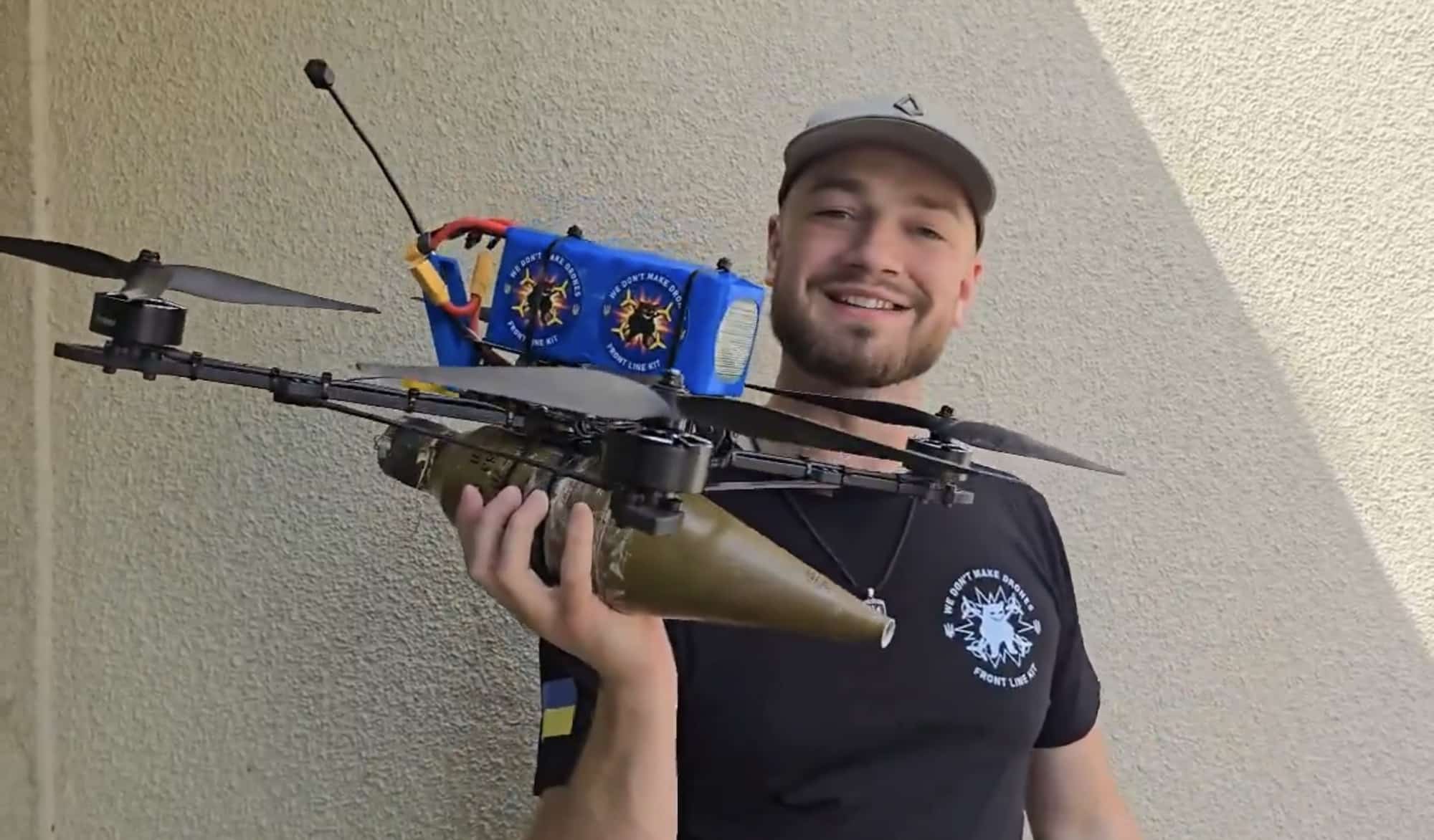On June 1, 2025, Ukraine launched a shocking drone offensive, codenamed Operation Spider’s Net, obliterating over 40 Russian navy plane, together with strategic bombers vital to Moscow’s conflict machine. Executed with smuggled first-person view (FPV) drones launched from modified vehicles, this audacious assault focused 5 airbases deep in Russian territory, some so far as 2,500 miles from Ukraine’s border. The operation, meticulously deliberate over 18 months, showcases Ukraine’s modern drone techniques and delivers a daring assertion forward of peace talks in Istanbul, redefining fashionable warfare for drone professionals and lovers.
Operation Spider’s Net: A Feat of Ingenuity
Underneath the direct oversight of Ukrainian President Volodymyr Zelenskyy and the SBU intelligence company, Operation Spider’s Net focused airfields housing Russia‘s prized strategic bombers, together with Olenya within the Arctic Circle (1,000 miles from Ukraine) and Belaya in Siberia (2,500 miles away). These bases, beforehand thought untouchable, sheltered elite plane just like the Tu-95 “Bear,” able to carrying nuclear warheads; the Tu-160 “Blackjack,” the world’s largest fight plane; and the Tu-22M3 “Backfire,” a supersonic mainstay. Ukrainian officers declare 117 FPV Drones, every costing a number of thousand {dollars}, destroyed property value as much as $100 million per aircraft, with complete damages estimated at $7 billion.
The drones had been smuggled into Russia inside modified delivery containers on business vehicles, geared up with retractable roof panels that opened remotely to launch the payloads. Some vehicles featured self-destruct mechanisms, as evidenced by footage exhibiting explosions when locals tried to intervene close to Olenegorsk. “No intelligence operation on the earth has achieved something like this earlier than,” protection analyst Serhii Kuzan instructed Ukrainian TV, emphasizing the operation’s complexity. The drones reportedly used Synthetic Intelligence to pinpoint plane vulnerabilities, reminiscent of gas tanks or engines, making certain most destruction with minimal sources.

Drone Expertise’s Sport-Altering Position
Operation Spider’s Net highlights the transformative potential of FPV drones, historically used for short-range tactical missions. These compact, agile units, operated by way of real-time video feeds, proved able to executing long-range, high-precision strikes when paired with modern supply methods. The combination of AI for goal choice allowed drones to evade Russian air defenses, just like the Pantsir system, which wrestle to detect small, low-flying objects. This marks a big evolution from earlier Ukrainian drone strikes, which focused bases inside 300 miles of the border.
The operation’s cost-effectiveness is hanging. Whereas Russia’s bombers require many years of growth and billions in funding, Ukraine’s FPV drones are produced quickly and inexpensively. Army blogger Oleksandr Kovalenko famous that the focused plane, together with the Tu-160, are now not in manufacturing, making repairs difficult and replacements not possible. The destruction of an A-50 “Mainstay” airborne command plane, valued at $330 million and significant for coordinating air operations, additional compounds Russia’s losses. With solely a handful of A-50s remaining, their depletion might disrupt Russia’s battlefield coordination.
Strategic and Diplomatic Implications
The assault’s timing, hours earlier than ceasefire talks in Istanbul, was strategic. Ukraine, annoyed by Western perceptions of its imminent defeat, aimed to reveal resilience. “That is what occurs when a proud nation below assault doesn’t hearken to all these: ‘Ukraine has solely six months left’,” posted Ukrainian protection journalist Illia Ponomarenko on X, capturing nationwide sentiment. By degrading Russia’s long-range strike capabilities, Ukraine strengthens its place on the negotiating desk, led by Protection Minister Rustem Umerov. Iryna Vereshchuk, deputy head of Ukraine’s presidential workplace, described the strike on Telegram as “not a knockout, however a really critical knockdown for the enemy.”
For Russia, the operation exposes obvious vulnerabilities. Airbases assumed safe because of their distance from Ukraine had been breached with ease, elevating questions on intelligence and air protection failures. The assault’s psychological impression extends to civilian populations in Siberia and Russia’s Arctic, beforehand insulated from the conflict. Russia’s response might contain intensified airstrikes, as seen within the 472-drone barrage on Ukraine the identical day, however its degraded air pressure limits speedy retaliation choices.


Trade Tendencies and Technological Shifts
Operation Spider’s Net alerts a paradigm shift in drone warfare, the place low-cost, AI-enhanced methods problem standard navy property. Ukraine’s success is more likely to speed up international funding in autonomous drones and counter-drone applied sciences. Protection Minister Umerov just lately introduced plans to ship 30,000 DeepStrike drones in 2025, designed for long-range precision strikes. These developments might additional tilt the battle’s stability, enabling Ukraine to focus on Russian infrastructure with larger frequency.
The operation additionally exposes gaps in anti-drone defenses. Russia’s incapability to neutralize FPV drones underscores the necessity for superior radar, digital warfare, and laser-based methods. For the Drone Trade, this creates alternatives for innovation in detection and interception applied sciences. Nonetheless, the usage of civilian vehicles for navy functions raises regulatory issues, doubtlessly prompting stricter worldwide legal guidelines on dual-use logistics.


Financial and Operational Fallout
The monetary toll on Russia is immense. With 34% of its strategic cruise missile carriers reportedly hit, the lack of plane just like the Tu-95 and Tu-160 disrupts long-range strike capabilities important for focusing on Ukrainian cities. Repairing broken planes, if possible, will price thousands and thousands and take years, straining Russia’s military-industrial advanced. The financial distinction is stark: Ukraine’s funding in drones, possible below $1 million, yielded damages doubtlessly exceeding $1 billion.
Operationally, Russia might have to relocate its remaining bombers additional east, complicating logistics and decreasing sortie charges. This shift might present Ukraine’s forces non permanent respite from aerial bombardments, permitting higher useful resource allocation alongside the 620-mile entrance line. Nonetheless, Ukraine’s personal losses—12 troopers killed in a Russian missile strike the identical day—spotlight the battle’s ongoing depth.
A Defining Second for Drone Warfare
Operation Spider’s Net redefines drone functions, mixing ingenuity, know-how, and strategic timing to ship a historic blow. As Zelenskyy said on Telegram, “We’re doing all the pieces to guard our independence, our state and our individuals.” For drone professionals, this operation is a case research in maximizing restricted sources towards a superior foe. It underscores the necessity for continued innovation in unmanned methods and defenses, as drones more and more form the battlefield. Whereas Russia’s retaliation looms, Ukraine’s strike has boosted morale and international confidence in its resolve, cementing drones as a cornerstone of recent warfare.


Images courtesy of X
Uncover extra from DroneXL.co
Subscribe to get the newest posts despatched to your electronic mail.

